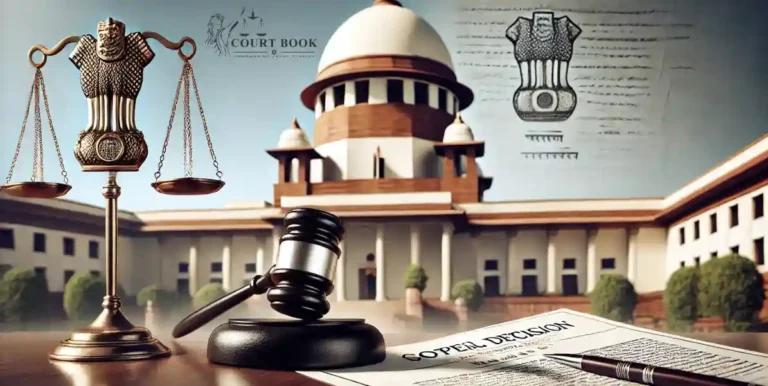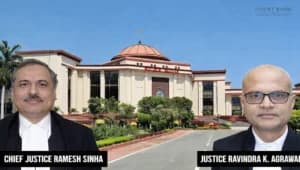The Supreme Court of India recently made a significant ruling in the case of former Gujarat IAS officer Pradeep Sharma. While the court refused to quash a 2011 FIR filed against him for allegedly misusing his official position to pass favorable orders in a land dispute, it granted him anticipatory bail. The bench, comprising Justice Vikram Nath and Justice PB Varale, delivered the judgment on February 28, 2025.
Background of the Case:
The case dates back to 2011 when an FIR was registered against Pradeep Sharma at the Tankara Police Station in Rajkot, Gujarat. The FIR accused Sharma of offenses under Sections 409 (criminal breach of trust), 219 (public servant disobeying the law), and 114 (abetment) of the Indian Penal Code (IPC). The allegations stemmed from Sharma's decision, as the then District Collector of Rajkot, to set aside an order that had forfeited 65 acres of government land. The land had been allotted to certain individuals in 1970, but the Deputy Collector had canceled the allotment in 2000, citing that the allottees were not cultivating the land and were residing abroad.
Sharma, in his capacity as Collector, overturned the Deputy Collector's decision in 2008 and restored the land to the allottees. This decision was later challenged, and the Principal Secretary, Revenue (Appeals), set aside Sharma's order, directing the government to reclaim the land. The FIR alleged that Sharma had acted against the government's interest by favoring the allottees, despite knowing they were not eligible to retain the land.
High Court's Decision:
Sharma approached the Gujarat High Court in 2011, seeking to quash the FIR. He argued that the allegations were baseless and motivated by political vendetta. However, the High Court dismissed his plea in December 2018, stating that the allegations were serious and required a thorough investigation. The court noted that the facts of the case, including the allottees' absence from India and the delay in filing the appeal, needed to be examined in detail.
In February 2019, Sharma again approached the High Court, this time seeking anticipatory bail. The court rejected his plea, citing the seriousness of the allegations and the need for custodial interrogation. The High Court also pointed out that Sharma had been transferred from Rajkot to Bhavnagar before passing the controversial order, raising questions about his jurisdiction.
Read Also:- Supreme Court: No Compensation for Wrongful Confinement in Bail Hearings Under Section 439 CrPC
The Supreme Court, while hearing Sharma's appeal, refused to quash the FIR. The bench observed that the allegations against Sharma were serious and involved misuse of official position, criminal breach of trust, and corrupt practices. The court noted that the matter required a detailed investigation, and it would be inappropriate to quash the FIR at this stage.
"The prayer seeking quashing of the FIR and the criminal proceedings is refused, as the allegations against the applicant involve serious allegations of misuse of official position, criminal breach of trust, and alleged corrupt practices in the discharge of public duties," the court stated.
However, the court granted Sharma anticipatory bail, considering that the investigation primarily involved documentary evidence and did not require custodial interrogation. The court imposed certain conditions for the bail, including Sharma's cooperation with the investigation and the possibility of custodial interrogation if deemed necessary by the investigating agency.
"The appellant upon arrest may be released upon furnishing a personal bond of Rs. 1,00,000/- (Rupees One Lakh only) to the satisfaction of the Investigating Officer in the present case," the court ordered.
Read Also:- Supreme Court Clarifies Contributory Negligence in Motor Accident Claims:: No Presumption Without Evidence
Key Observations by the Court:
- Serious Allegations: The court acknowledged that the allegations against Sharma were serious and involved potential misuse of his official position. The case required a thorough investigation to determine whether Sharma had acted in favor of private allottees against the government's interest.
- Jurisdictional Issues: The court noted that Sharma had passed the controversial order after being transferred from Rajkot to Bhavnagar, raising questions about his jurisdiction at the time of the decision.
- Documentary Evidence: The court emphasized that the case primarily revolved around documentary evidence, and custodial interrogation was not necessary. Sharma's willingness to cooperate with the investigation also played a role in the decision to grant anticipatory bail.
- No Evidence of Tampering: The court found no evidence to suggest that Sharma would tamper with evidence or influence witnesses, which further justified the grant of anticipatory bail.
Case Details : Pradeep N Sharma v State of Gujarat and Another / SLP (CRL) 354/2019















